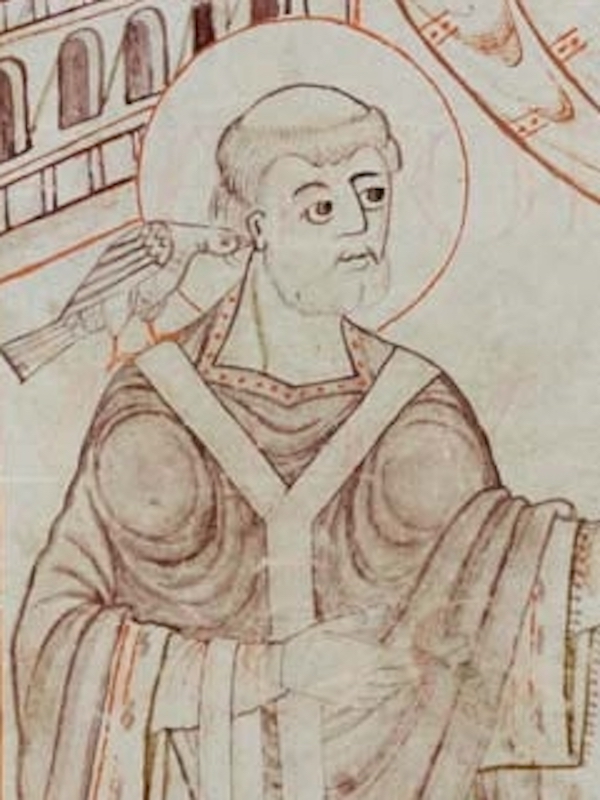Gregory the Multitasker
Readings for the feast day of Gregory the Great, Friday, March 12, 2021:
Psalm 57
Genesis 18:1-15
Mark 10:42-45
In our Gospel reading, Jesus is once again emphasizing servanthood as the primary act of what “following Jesus” means. When we look at the life of Gregory the Great, the variety and diversity of what was influenced by his ministry tells a tale of a remarkably multitasking servant.
Gregory was born to a politically prominent family (his father was a Roman Senator) in 540. Gregory was a product of that privilege and essentially a political wunderkind, rising to the title of Prefect of Rome by the time he was 30 years old. Shortly thereafter, he did a complete 180 degree turn and entered a monastery. Monastic life, though, was not his calling, and he didn’t stay there long (although he would draw on his experiences in the monastery for the rest of his life.) His real calling was in church administration; and that call allowed him to explore a variety of ways to spread Christianity.
Of particular importance to Episcopalians, he is an index ancestor in the story of Anglican Christianity. Gregory first encountered people from the British isles as slaves being sold at the Roman slave market. He was incredibly struck by their pale skin and fine facial features, and likened them to angels. As Pope, he spearheaded the creation of mission expeditions to Britain, and these expeditions were highly successful.
He is also the source of some of the routine formatting of our Eucharistic liturgy; namely devising one of the earliest lectionaries, locating the Lord’s Prayer immediately before the fraction, and adding seasonal collects and prefaces in the Eucharistic liturgy. A prolific writer, he wrote a series of homilies on the Book of Ezekiel, several sacramental instructional books, a hagiography of the saints of 6th century Italy, and a four volume work on pastoral care. Although the medical advice he dispensed for pastors ranged from the quaintly laughable (for instance, that people with small noses are poor at discernment because one needs large nostrils for that) to the misinformed and even occasionally offensive, a great deal of his pastoral advice is still applicable today. (The one that caught my eye was he instructed priests to refrain from fouling the pure water of Christ with their dirty feet, reminding them that their public behavior should always be a good example to followers.)
Gregory was not solely an academic; he also took seriously the call for people to be physically, as well as spiritually fed. During a drought, he organized a supply and distribution chain to import grain from Sicily, even raising literally a small army of volunteers to help with the charitable distribution of food to those too weak or too ill to pick up monthly food at a distribution point.
Gregory also understood the need for those who were illiterate to “read” the Gospel in terms they could comprehend. He created a school for church musicians, and is attributed in being one of the forces behind the development of Gregorian chant (at the very least, named for him.) He established hospitals for the indigent, and commissioned art for churches, saying “Illiterate men can contemplate in the lines of a picture, what they cannot learn by means of the written word.” Even though he was plagued by arthritis in the last part of his life, dying in the year 604 from multiple medical maladies, he was still able to use his organizational skills in serving others.
Many times, we discount our own power as evangelists of the Gospel because we’re introverts, or uncomfortable as public (or even private) speakers. Gregory the Great is proof for every organizer of a church bazaar, food ministry, or outreach ministry that they are, indeed, preaching the Gospel of Jesus Christ.
What gifts might you have that, at first, don’t seem “ministerial”, but could be the key to unlocking bold new ministries in our parishes?
Maria Evans splits her week between being a pathologist and laboratory director in Kirksville, MO, and gratefully serving in the Episcopal Diocese of Missouri , as the Interim Pastor at Christ Episcopal Church, Rolla, MO.

